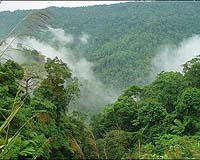 |
Cancun, Mexico (AFP) Dec 11, 2010 Global talks on climate change Saturday set up a new fund to manage billions of dollars in aid to poor nations in a hard-fought package that turned the page on the bitter Copenhagen summit. More than 190 countries meeting in Mexico agreed to seek "deep cuts" in carbon emissions blamed for global warming. But negotiators kept ambitions in check and tried to make headway on select areas instead of seeking a treaty. In a change from Copenhagen's venomous atmosphere last year, the talks in the beach resort of Cancun ended after two sleepless nights with standing ovations for the chief negotiator, Mexican Foreign Secretary Patricia Espinosa. US President Barack Obama congratulated Mexican President Felipe Calderon in a phone call for "Mexico's excellent work chairing the Cancun conference to a successful conclusion that builds on the historic Copenhagen Accord and advances the effort to address the challenge of climate change," the White House said. The agreement represents "a balanced and significant step forward" and "meaningful progress in our global response to climate change," US Secretary of State Hillary Clinton added. UN Secretary General Ban Ki-moon, who flew to Cancun to plead for progress, said the negotiations "have delivered important success for a world much in need of it." The Cancun agreement set up a "Green Climate Fund" to administer assistance to poor nations, which many experts say are already suffering more floods and drought as temperatures steadily mount. The fund will be steered by a board of 24 members chosen evenly from developed and developing nations. For the first three years, the new international organization would be overseen by the World Bank -- a controversial point for some who distrust the Washington-based lender. The European Union, Japan and the United States since last year led pledges of 30 billion dollars in immediate assistance, to rise to 100 billion dollars a year to start by 2020. A broader issue is just how wealthy nations would raise the money, with few governments enthusiastic to commit such large amounts in tough economic times. Some envoys advocated taxing airplane and shipping fuel. But the meeting postponed much of the hardest work -- including the determination of emission cuts for all nations -- for 2011 talks in South Africa. The Cancun agreement called for "urgent action" to cap temperature rises at no more than two degrees Celsius (3.6 Fahrenheit) above pre-industrial levels, and asks for a study on strengthening the commitment to 1.5 degrees Celsius. The proposal says it "recognizes that deep cuts in global greenhouse gas emissions are required according to science." The Cancun deal also agreed on ways forward on fighting deforestation, a leading cause of climate change, and on monitoring nations' climate pledges. Bolivia was the main holdout. To the dismay of many bleary-eyed negotiators, Bolivia's Pedro Solon took the microphone repeatedly after midnight, saying the deal would not halt climate change but "put more humans in a near-death situation." Espinosa overruled him, saying that UN rules requiring consensus did not give one country "veto power." Solon objected, and a spokesman for the Bolivian delegation later said it would go to "all international bodies, including the tribunal in The Hague," to argue that the way the agreement was approved violated international law. The vast majority of countries however offered support. Australian Climate Change Minister Greg Combet called the deal a "historic step forward." Chief US negotiator Todd Stern said: "Obviously the package is not going to solve climate change by itself, but I think it is a big step forward." The talks were stuck for days over the fate of the Kyoto Protocol, the landmark treaty whose obligations on wealthy countries to cut emissions expires in late 2012. The European Union led calls for a new round of commitments under Kyoto, a move that Japan opposed, noting that the protocol covers only 30 percent of global emissions because top polluters including China and the United States are not part of it. In a compromise Japan accepted, the Cancun agreement called for work on a second period of the Kyoto Protocol "to ensure that there is no gap," but did not oblige countries to be part of the new round. The Kyoto Protocol makes no demands on emerging economies to curb emissions. China has refused to be subjected to a treaty, although India in a surprise shift in Cancun said it would at least consider binding action in the future. The United States was the only wealthy nation to snub Kyoto. Obama shifted gears on climate when he took office, but his hopes for legislation to restrict carbon were dashed when the rival Republican Party won last month's election.
Share This Article With Planet Earth
Related Links Climate Science News - Modeling, Mitigation Adaptation
 Climate talks agree to pay to protect forests
Climate talks agree to pay to protect forestsCancun, Mexico (AFP) Dec 11, 2010 A new climate change deal reached in Mexico has set up a global framework to pay to protect rainforests vital to the ecosystem, but held off on the controversial introduction of a market role. The deal aims to help developing nations fight deforestation by offering incentives to some 1.2 billion inhabitants of worldwide forests, and governments, to preserve their trees. While many factor ... read more |
|
| The content herein, unless otherwise known to be public domain, are Copyright 1995-2010 - SpaceDaily. AFP and UPI Wire Stories are copyright Agence France-Presse and United Press International. ESA Portal Reports are copyright European Space Agency. All NASA sourced material is public domain. Additional copyrights may apply in whole or part to other bona fide parties. Advertising does not imply endorsement,agreement or approval of any opinions, statements or information provided by SpaceDaily on any Web page published or hosted by SpaceDaily. Privacy Statement |